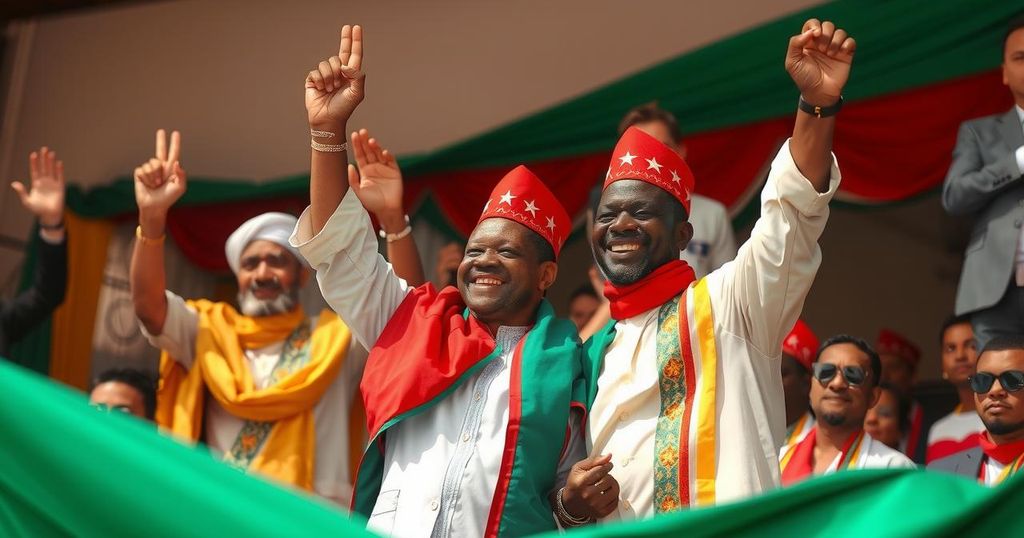Chad’s Ruling Party Secures Majority Amid Election Boycott by Opposition
Chad’s ruling party, the Patriotic Salvation Movement, won a majority in the recent parliamentary elections, garnering 124 of 188 seats, amid a boycott from key opposition parties. The elections were seen as pivotal for the transition to democracy following President Mahamat Idriss Deby’s military rule. Concerns about the legitimacy of the process persist as the country deals with significant security challenges.
In a significant development for Chad’s political landscape, the ruling Patriotic Salvation Movement has secured a majority in the recent parliamentary elections, purportedly marked by a boycott from key opposition parties. The provisional results indicate that the ruling party obtained 124 out of 188 seats, with a reported voter turnout of 51.5%. This election is momentous as it marks the first parliamentary election in the country in over a decade. President Mahamat Idriss Deby, who assumed power in 2021 following the death of his father, former President Idriss Deby Itno, heralded this election as a pivotal transition towards democracy. He expressed the hope that it would facilitate a long-awaited decentralization of power, distributing authority beyond the national government to regional and municipal levels. However, the absence of numerous opposition parties, including the main Transformers party, raised questions regarding the credibility of the electoral process, which had already faced scrutiny following a contested presidential vote last year. As Chad grapples with significant security challenges, including the ongoing threat from Boko Haram, the political environment remains precarious while the newly elected parliament takes shape.
Chad’s latest parliamentary elections come against a backdrop of political instability and dissatisfaction. Following the death of long-serving President Idriss Deby Itno, his son, Mahamat Idriss Deby, assumed power as a military leader. The transitional government then announced this parliamentary election as a final step toward restoring democracy after over a decade without legislative elections. The ruling party’s victory amidst a boycott by major opposition groups raises concerns about the legitimacy of the electoral process and the implications for the country’s democratic initiatives. Analysts suggest that the lack of strong opposition has enabled the ruling party to maintain a tight grip on power, raising questions about future governance and political pluralism in Chad.
The recent parliamentary election in Chad has resulted in a dominant win for the ruling Patriotic Salvation Movement, solidifying President Mahamat Idriss Deby’s authority. However, the electoral process has been overshadowed by a boycott from the primary opposition, casting doubt on the legitimacy of the results. As Chad faces pressing security challenges, the prospects for democracy and effective governance remain uncertain under the current political climate, prompting critical examination of the elections and the role of opposition parties in shaping the country’s future.
Original Source: www.euronews.com




Post Comment